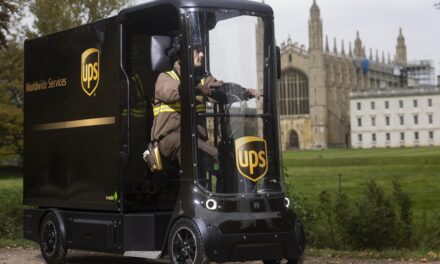
UPS unveils climate-controlled container for healthcare shipments
UPS has unveiled its latest innovation as the world’s major integrators battle it out to attract market share in the healthcare shipment market. Just days after DHL revealed its new cellular-linked monitoring device for sensitive life science and healthcare shipments, the Atlanta-based integrator has launched its new PharmaPort 360 system.
Available through the UPS cold-chain service UPS Temperature True, the PharmaPort is a container that includes temperature control systems capable of protecting loads from a wide range of extreme ambient temperatures thanks to its heating and cooling technology.
The system dispenses with the need for dry ice – cutting out a major headache in managing transportation.
And, while in transit the system is self-conteined, requiring no external power supply thanks to its rechargeable batteries and emitting no exhaust fumes – allowing more flexibility for flights and other transport options.
The system already has Federal Aviation Authority clearance for US flights.
“Critical”
UPS said the PharmaPort 360’s ability to face more extreme conditions, and maintain storage conditions for up to 100 hours, would be important as healthcare supply chains extend ever further across the globe.
Mark Davis, product manager at UPS Healthcare Logistics, said: “Amid the tremendous surge of temperature-sensitive therapies coming to market, it’s critical to have the most reliable solutions in place to help ensure the safe supply of healthcare products while also driving cost and operational efficiencies for healthcare manufacturers.”
As with DHL’s new SmartSensor GSM monitoring device, which is a sensor rather than a full environment-control container, UPS has provided its new PharmaPort system with a cellular system to allow on-board monitoring systems to transmit data back to its global control centre.
It means UPS agents can monitor data almost in real-time to check for potential problems, swinging contingency plans into action if any alerts are triggered.
Davis said the healthcare industry was facing increasing scrutiny from regulators regarding supply chain conditions and shipment controls.
He said: “Having the information to prove that the integrity of a vaccine or human tissue has been preserved in-transit, for example, is almost as critical as the contents of the package.”












